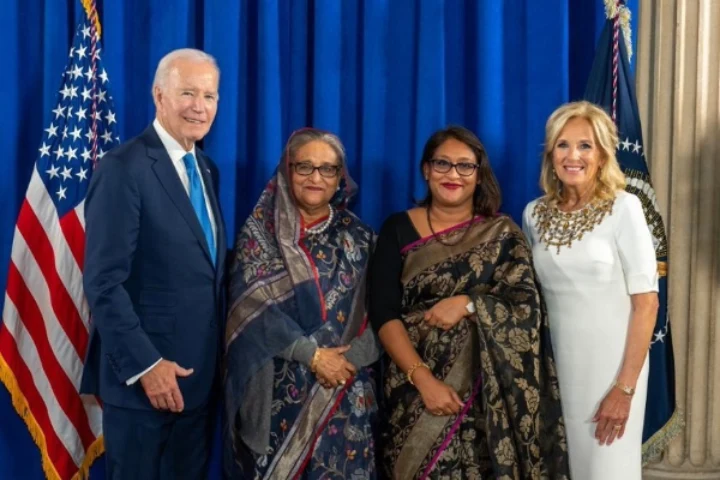The US government has said that it would want to strengthen bilateral ties with Bangladesh.
President Joe Biden in a letter to Bangladesh PM Sheikh Hasina said that Washington will back Dhaka’s ambitious economic goals plan.
On February 4, the US Embassy in Dhaka shared the letter with the country’s foreign ministry.
Biden reiterated the desire of his administration to continue their work together on various issues including regional and global security, economic development, climate change and energy, global health, humanitarian support, especially for Rohingya refugees.
“We have a long and successful history of working together to solve problems, and our strong people-to-people ties are the foundation of this relationship,” he wrote.
The Sheikh Hasina government recently came to power in an election where the majority of the opposition parties did not take part. The Awami League won a two-third majority in Parliament.
The Biden government had repeatedly criticised Hasina. The US and the UK – the two major trade partners of Bangladesh, have described the elections that extended Hasina’s rule as not credible, free and fair in which the opposition parties did not take part.
In the letter, the US government also expressed its willingness to partner with Bangladesh on their shared vision for a free and open Indo-Pacific. “The United States is committed to supporting Bangladesh’s ambitious economic goals and partnering with Bangladesh on our shared vision for a free and open Indo-Pacific,” Biden said.
Trade between both the countries has risen dramatically over the last decade with bilateral trade between the two nations valued at $14bn, with Bangladeshi exports mainly consisting of clothing while US exports consisted of products such as steel and agricultural goods.
Over the past five decades, the US has provided more than $8bn in assistance, contributing to impressive achievements such as tripling rice production and reducing maternal and newborn mortality by 70%.
(The story is being republished courtesy StratNews Global)




















